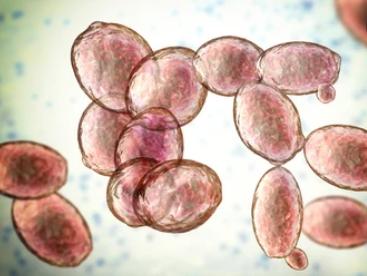
- Home
- PTMs Proteomics
- Proteomics Analysis of Propionylation
Lysine propionylation is a newly discovered type of acylation that can occur in a variety of proteins, including histones and non-histones. Lysine propionylation has been found to play an important regulatory role in both eukaryotes and prokaryotes. As a newly discovered reversible post-translational modification (PTM) of protein, its function remains to be investigated in depth and has great potential for research. At present, lysine propionylation has been reported to take part in a range of biological processes and cellular metabolic pathways in prokaryotes and eukaryotes, such as bacteria metabolic and metabolic enzyme activity regulatory, bacteria and mammal cellular stress response, epigenetic regulation, and so on. Creative Proteomics offers the lysine propionylation analysis service to identify propionylated proteins and their modification sites in a reliable and effective manner.

Lysine propionylation is a short-chain acylation of lysine residues in cellular proteins by adding a propionyl group (CH3-CH2-CO-) to the ɛ-amino group of the lysine residue. Compared to acetylation, lysine propionylation is bulkier and more hydrophobic due to one or two additional methylene groups, but their chemical properties are similar. Current research on lysine propionylation is focused on the identification of propionylated proteins in prokaryotes (e.g., Thermus thermophilus, Mycobacterium tuberculosis, Cyanobacteria, and yeast) and eukaryotes, and on the enzymes that regulate this modification. The studied enzymes responsible for the addition and removal of lysine propionylation, such as CREB-binding protein, AcuA, CobB, p300, Sirt1/2/3, etc. These studies suggest that lysine propionylation occurs in a wide range of proteins and has implications for a variety of biological functions. In particular, lysine propionylation may be one of the mechanisms that regulate cellular metabolism and response to stressful conditions in bacteria and mammals.
Creative Proteomics combines high-affinity anti-alanyl lysine pan-antibodies with high-precision mass spectrometry (MS) analysis to provide comprehensive and accurate identification of lysine propionylated proteins and lysine propionylation sites in a variety of bacterial and mammalian cells. Our strong bioinformatics team provides standard and advanced bioinformatics services to meet a wide range of bioinformatics needs. With our well-established platform, we also provide functional validation services for propionylated proteins. Specifically, our service can help our customers to achieve the following lists:

You only need to place an order and send samples, we provide one-stop services. Please contact us if you are interested. We are looking forward to cooperating with you.
Reference
Our products and services are for research use only.